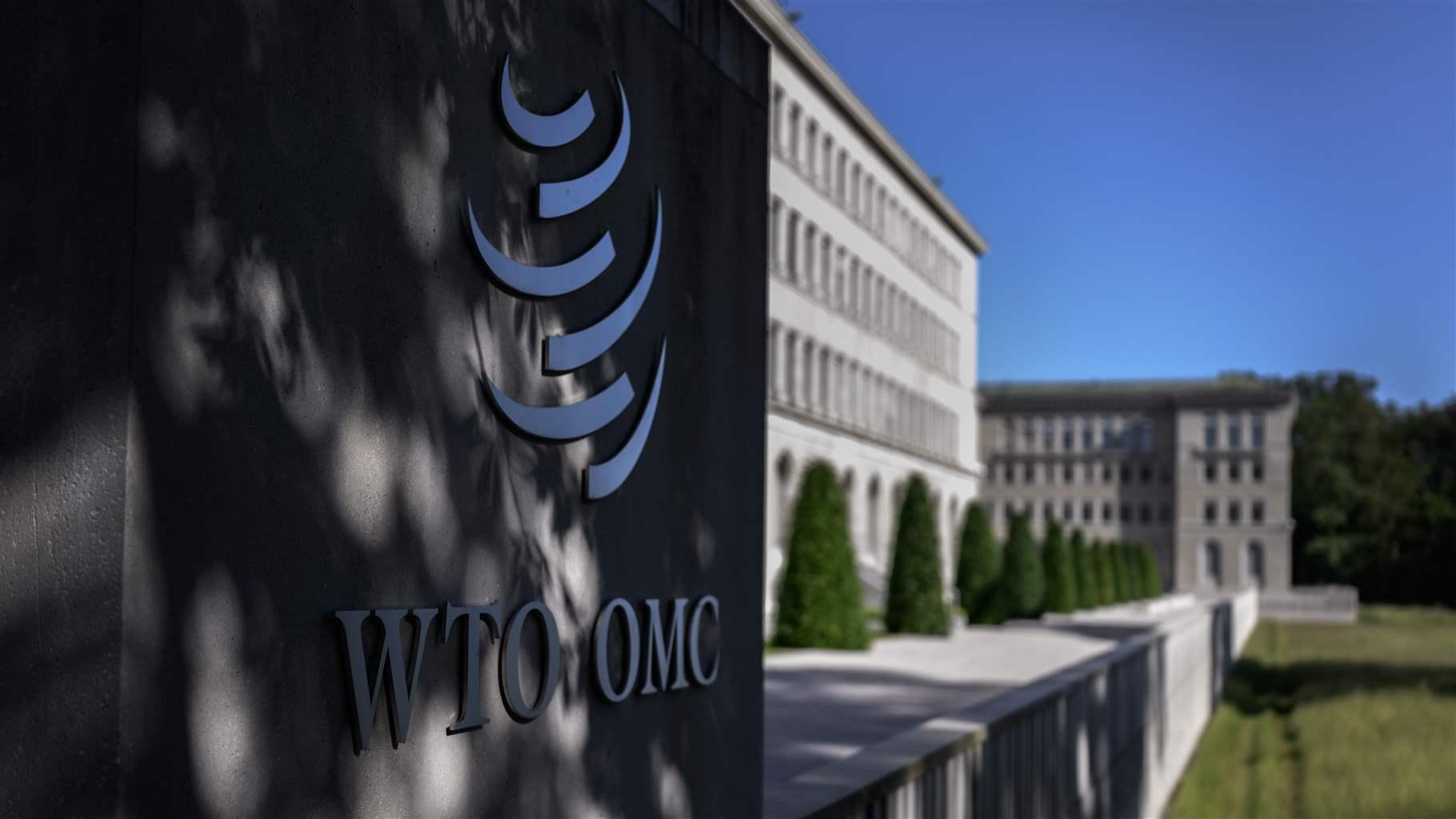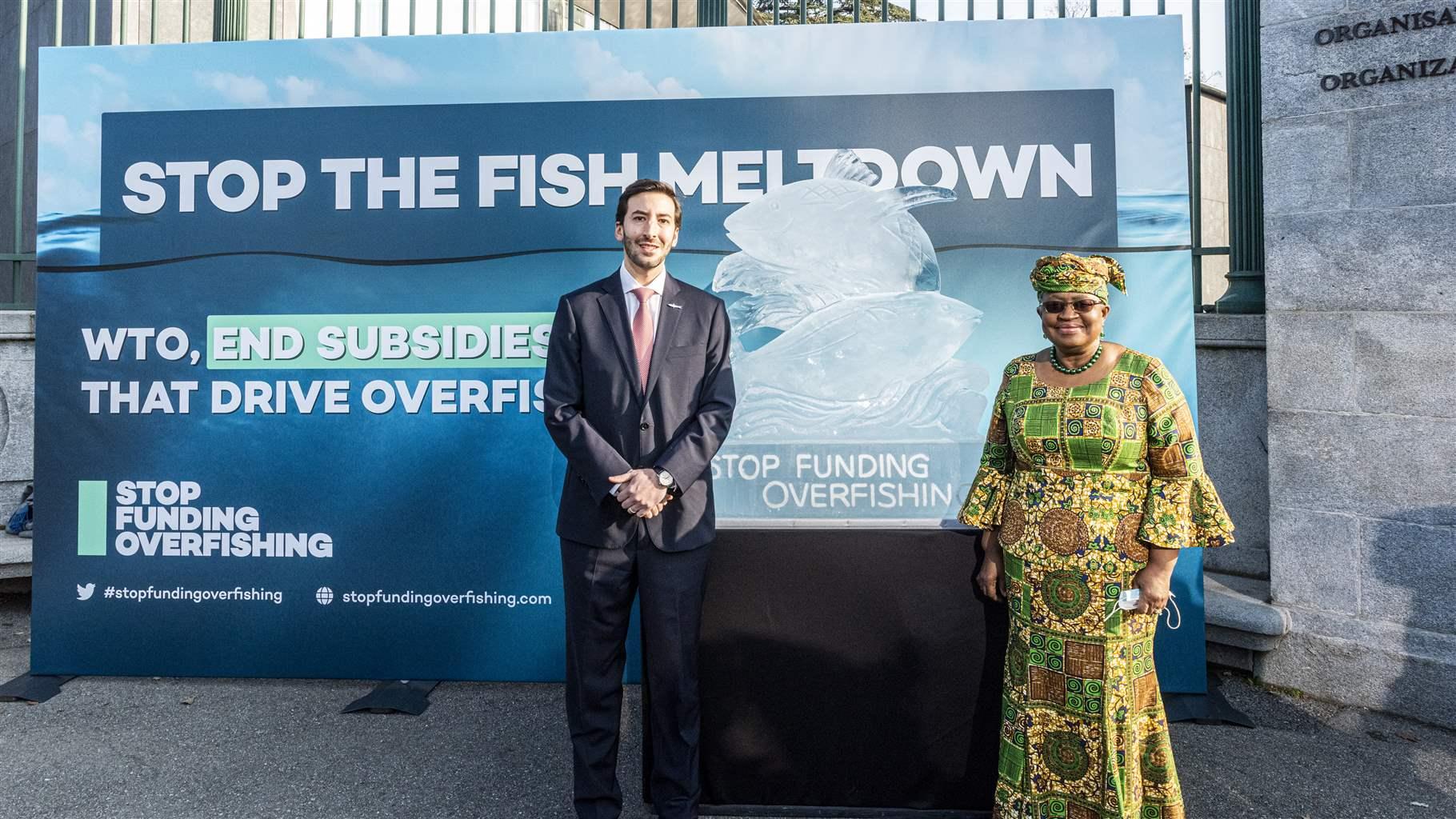Pressure Mounts on Governments Worldwide to Stop Subsidizing Overfishing
World Trade Organization, which missed its deadline to end harmful subsidies, must act now

In countries around the world, local fishers, families, businesses, and nonprofits are calling on World Trade Organization members to end harmful fisheries subsidies.
These damaging payments, which governments make primarily to owners of large, industrial vessels, are enabling those fleets to deplete fish populations faster than they can reproduce—an unsustainable trajectory that is hurting the ocean ecosystem and smaller-scale fishers now and will harm the entire fishing industry in the long run. Through the Stop Funding Overfishing coalition, stakeholders have written a policy statement urging WTO member countries to reach a binding global agreement that would curb harmful fisheries subsidies.
The coalition, which is made up of 177 civil society organizations from across the globe—including The Pew Charitable Trusts—used that statement to remind WTO members this week that they have already missed a deadline for reaching an agreement to cut these payments and therefore must do so as soon as possible. Under the United Nations’ Sustainable Development Goal 14.6, countries had committed to reducing harmful fishing subsidies by the end of 2020. Although they made significant progress, WTO members failed to come to a deal by the deadline; they resumed talks in January.
Research has shown that harmful subsidies are a key driver of overfishing, which throws ecosystems out of balance and can create food insecurity and economic hardship for families reliant on a healthy ocean. Science from the University of California, Santa Barbara indicates that removal of all destructive subsidies could lead to a 12.5% increase in global fish biomass by 2050. That number translates into nearly 35 million metric tons of fish—almost three times the entire continent of Africa’s fish consumption in a single year.
That’s why such a far-flung array of groups has united through Stop Funding Overfishing to call on WTO member countries to reach an agreement now. From China to Mexico to Spain and beyond, coalition members have worked to help their WTO representatives understand the urgent need for this agreement.
For example, on Monday—the first day of a WTO general council meeting and of the next WTO director-general’s term of office—some members of the coalition installed a fish ice sculpture outside of the WTO headquarters in Geneva to visually illustrate the “meltdown” of the world’s fish populations in large part because of bad subsidies. And in the 25 days leading up to the 2020 deadline, Stop Funding Overfishing used social media to highlight 25 reasons that governments should end harmful fishing subsidies, ranging from building a sustainable blue economy to encouraging responsible fisheries management. That digital campaign reached 50 million people.
Celebrities such as Sir David Attenborough and Prince Charles of Wales have also taken to social media to put pressure on the WTO to act quickly.
It’s well past time for governments to heed these calls—and the scientific evidence—by reaching an agreement as soon as possible to reduce harmful fisheries subsidies. Achieving this would help curb overfishing and protect the well-being and livelihoods of people around the world who depend on a healthy ocean.
Isabel Jarrett works on The Pew Charitable Trusts’ project to reduce harmful fisheries subsidies.











